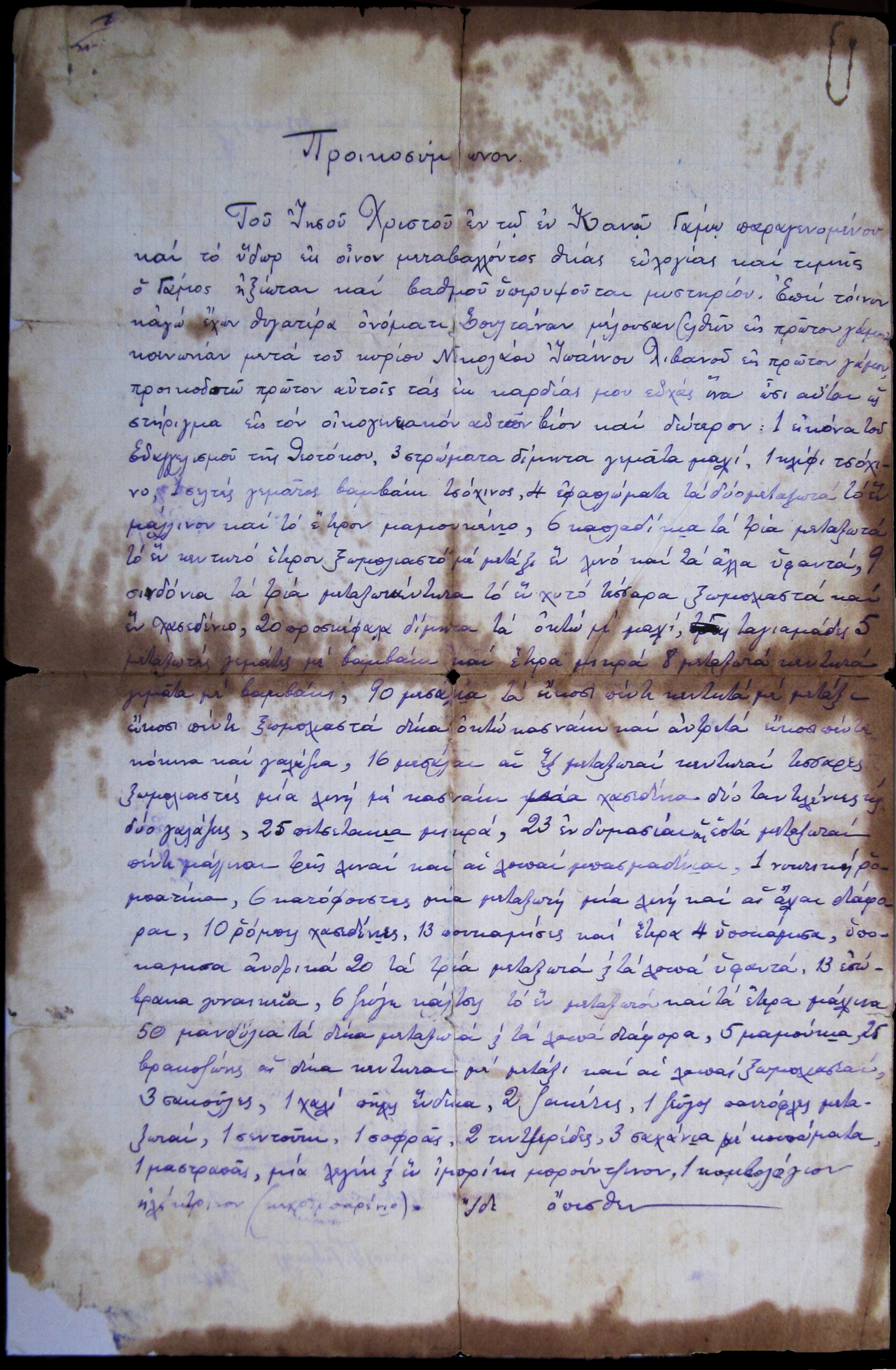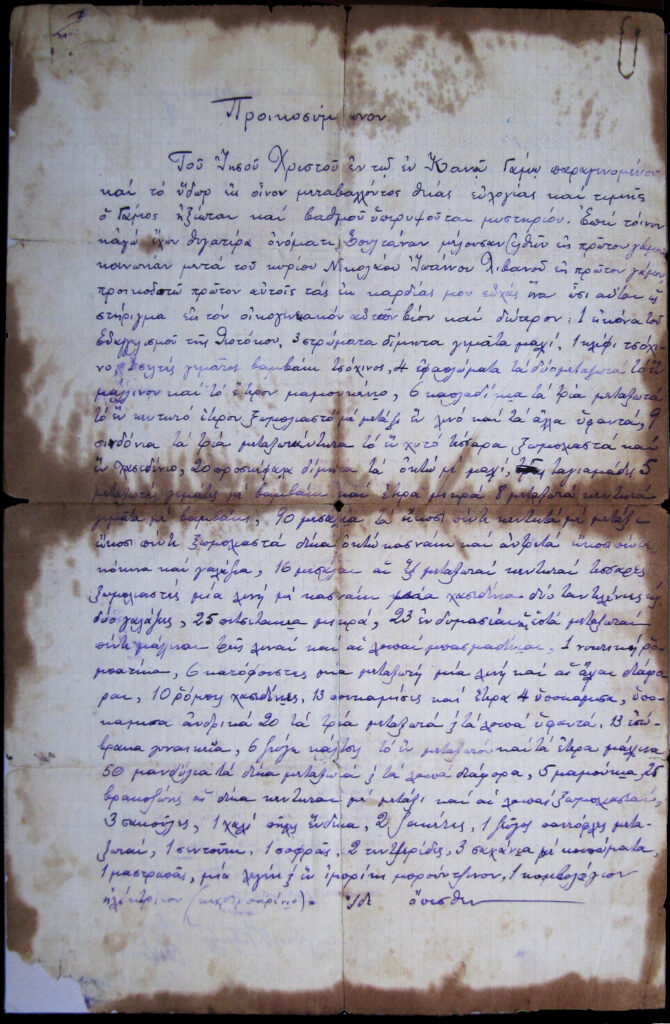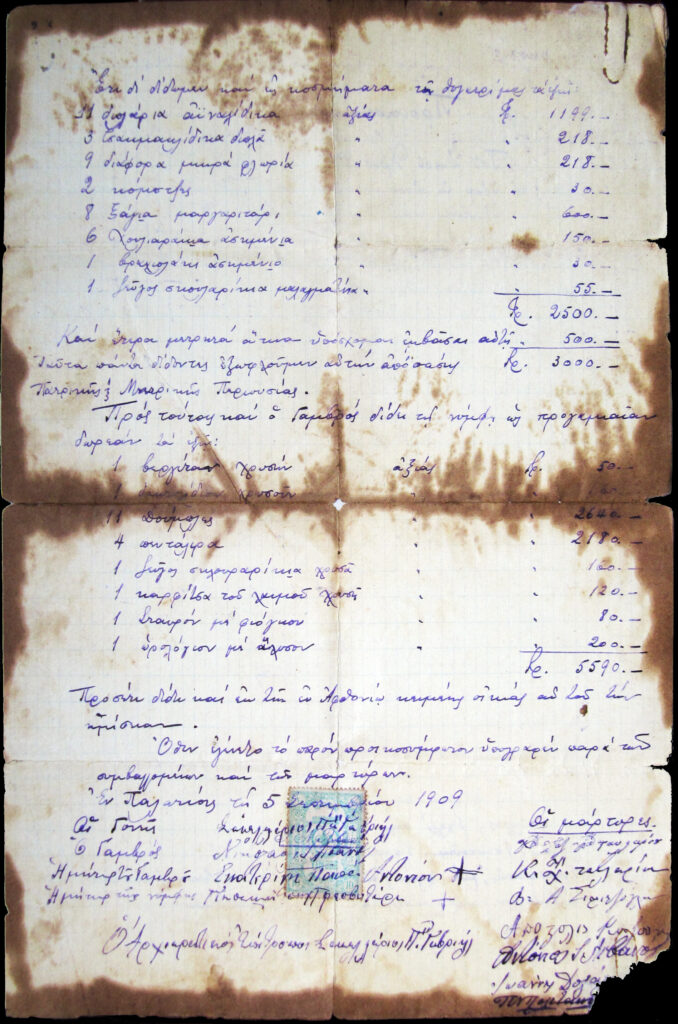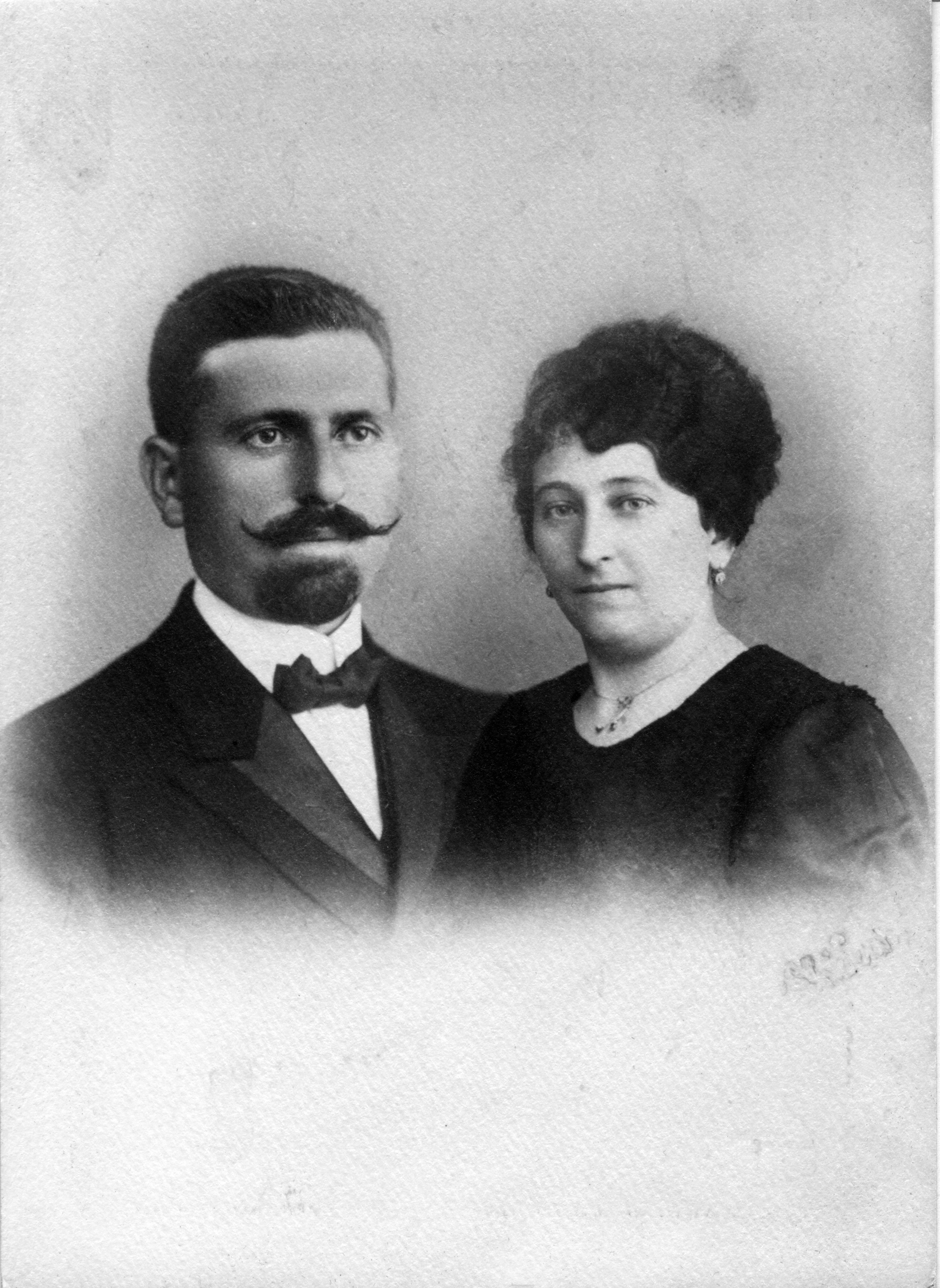On September 5, 1909, a dowry agreement was signed by Father Gavriil Papazoglou, an Orthodox deacon and father of the bride (Soultana Papazoglou), and Ioannis Livanos, father of the groom (Nikolaos Livanos), for the upcoming ‘first marriage’ of the young couple. Father Gavriil Papazoglou, a deacon at Palatia (Saraylar) which belonged to the Metropolis of Proikonnisos (Marmara Adasi, Marmara Island in English) gifted the young couple with ‘his heartfelt wishes in the hope that they will become the foundation of the couple’s family life’. The good wishes were accompanied by an array of valuables, linen, and other precious items which are diligently listed in the agreement. The wedding took place soon afterwards and Nikolaos Livanos and Soultana Papazoglou went on to have five children together, four daughters and one son. Nikolaos was a sailor at his family’s business, a shipping company operating cargo ships on the routes Marmara Island – Constantinople and Constantinople – Piraeus.
In 1924, the couple and their families were not deemed exempt from the Population Exchange Agreement and were forced to leave their homes. They first settled in Kallipoli, Piraeus and then moved to Koukaki. Nikolaos Livanos worked as a captain in cargo ships owned by his compatriots. Shortly after their settlement in Greece, Soultana died young of diabetes, while Nikolaos died on June 6, 1941, when an Italian submarine torpedoed the ship Eirini Kyraikidis, of which he was captain, outside the Azores. At that time, Aikaterini, the couple’s youngest daughter, had just reached adulthood and their son, Ioannis, was serving in the Greek Royal Navy. The duty of supporting the family fell to the eldest child, Marika, and Sultana’s aunt, Aunt Kyriakitsa.
Right after the end of the war, invited by his uncle, Chrysostomos, Ioannis left for New York where he worked in hospitality. In 1966, he met Chrysi Evangelatou from Zakynthos who was working for the Greek Delegation to the UN in New York. They got married and had a son together, Nikolaos Livanos. In 1981, they returned to Greece. During a family get-together, Aunt Magdalini gave Ioannis Livanos his parents’ dowry agreement. Today, the agreement is in the possession of Nikolaos Livanos’ grandson and namesake. Soultana’s dowry did not survive; part of it had to be left behind, either on Marmara Island or in Constantinople, and the rest was ruined by the passage of time. This family document attests to the moment the family was created according to the mores of the time, and it is the only keepsake that has survived the family’s long and tumultuous journey throughout the 20th and 21st century.




